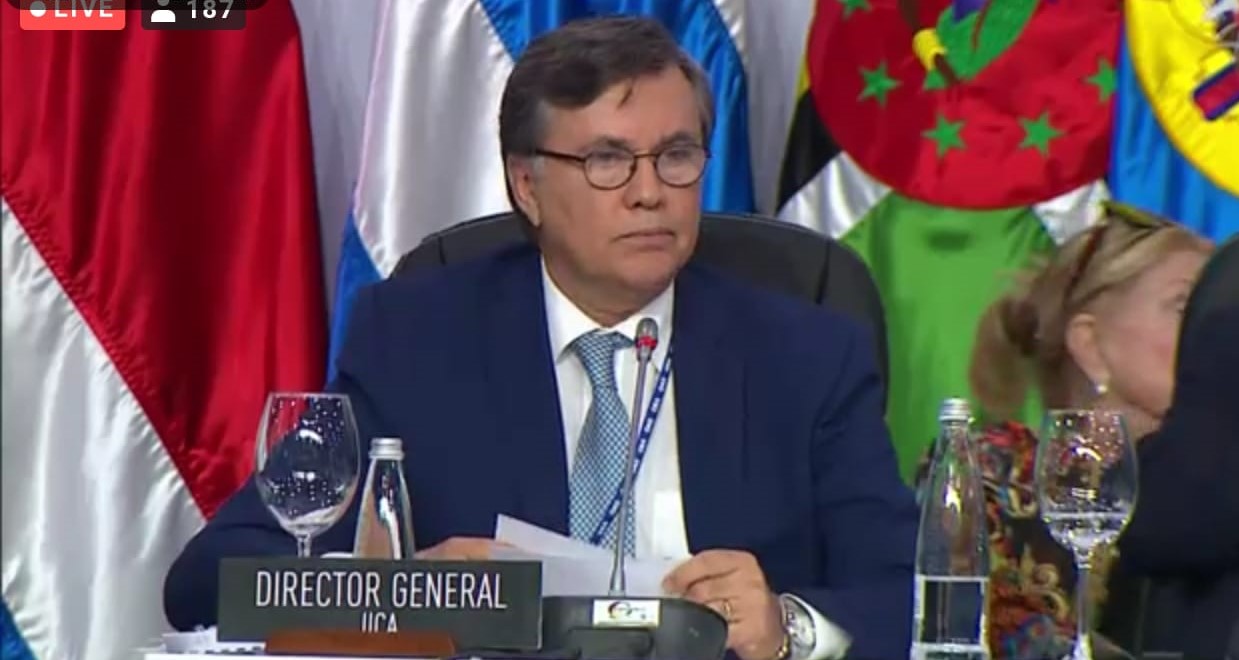The Director General of the Inter-American Institute for Cooperation on Agriculture (IICA), Manuel Otero, delivered a presentation during the 49th Regular Session of the General Assembly of the Organization of American States (OAS), calling on the organization to serve as a discussion forum for matters related to food and nutrition security on the continent.

SAN JOSE, 29 June (IICA)– In the Latin American and Caribbean region, the number of undernourished people has increased for the third consecutive year, reaching 39.3 million people (6.1% of the population), due primarily to the grave situation in Venezuela.
In some countries of the region, undernourishment affects less than 5% of the population, while in other countries like Bolivia, Guatemala and Nicaragua, more than 15% of people are undernourished. In Haiti, 45% of the population is exposed to food insecurity; in Venezuela, on the other hand, food insecurity affects 80% of the population.
This data forms part of a detailed report on the status of and outlook for food security in the hemisphere, presented by Manuel Otero, Director General of the Inter-American Institute for Cooperation on Agriculture (IICA), during the Forty-ninth Regular Session of the General Assembly of the Organization of American States (OAS), held in Medellín, Colombia.
“We bring this message here today because the General Assembly of the OAS should serve as the forum for periodic discussions on matters related to food and nutrition security in the region. Efforts must be undertaken to ensure that these topics are addressed by the Inter-American System; in this regard, IICA is the ideal institution to raise these issues on a regular basis,” remarked Otero.
“Timely information, along with clear indicators, will allow for making recommendations on and increasing awareness of areas in which it is necessary to adopt corrective measures in the countries,” added the Director General of IICA.
Otero highlighted the fact that working together with the member countries of the Inter-American System to promote food and nutrition security in the hemisphere is part of IICA’s mission. He also noted that Latin America and the Caribbean must take on pending tasks in order to guarantee food and nutrition security for their inhabitants.
One of those tasks, explained Otero, is the need for market transparency and greater investment in research and development in order to generate adequate frameworks that would lead to increased production, better macroeconomic indicators, and higher income for society as a whole.
In the Latin American and Caribbean region, the main risks associated with food insecurity in LAC are concentrated in the Central American Dry Corridor, Eastern Caribbean countries, Haiti and Venezuela; these areas also face the greatest limitations in increasing agricultural productivity.
The most severe case is that of Venezuela, where the daily calorie intake per person fell from 2,866 in 2011 to 1,416 in 2018, which is considerably below the recommended intake of 2,300 calories per day.
This situation is exacerbated by a limited supply of drinking water, as well as instability in the electrical supply and in access to domestic gas, all of which restrict proper food preparation.
“The grave situation in Venezuela today stands in contrast to its agricultural and food potential, reflected in the availability of arable land for agriculture, livestock and forestry, as well as its water supply, biodiversity, and important network of producers’ organizations,” stated Otero.
In this regard, he highlighted IICA’s technical capacity to reconstruct Venezuela’s institutions and agroindustrial infrastructure, as well as its readiness to join forces with those countries that are committed to assist in this task.
More information:
Institutional communication management











